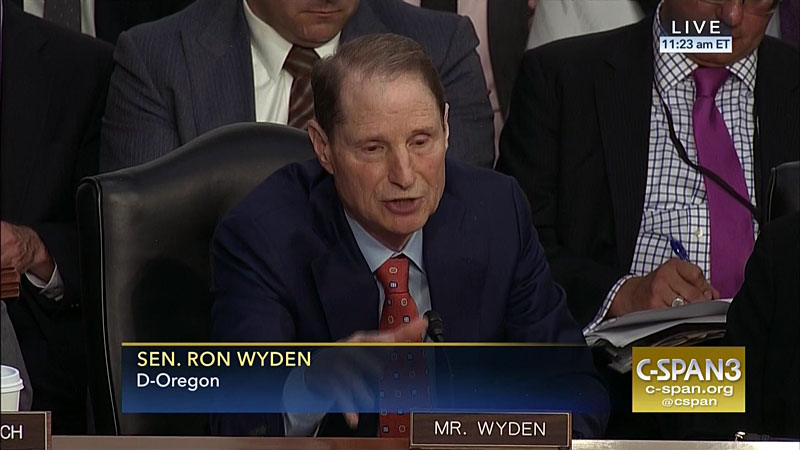PALM BEACH, FL – In the ongoing debacle which has highlighted ICANN’s unusual position on the .org registry sale which resulted in the billion-dollar sale of .org to a private equity company, US Senator Ron Wyden (D-OR) told The Register that the response from Ethos Capital to his and several of his colleges concerns regarding the sale .org – just isn’t good enough.

….nothing in this response addresses my concerns that selling .org to a private equity firm would be a real blow to internet users and nonprofits. The assurances Ethos Capital makes about its purchase essentially boil down to ‘trust us.’ That’s not good enough. I will explore every avenue available to Congress to step in and ensure users and nonprofits are protected.”
On December 23, 2019, a letter signed off by four U.S reps, one of which was presidential candidate Warren, was delivered to Ethos Capital, Internet Society and Public Interest Registry posing a laundry list of questions regarding the future operation of the .org domain registry as it is expected to transform from a non-profit entity, to a for-profit company.
On June 30, 2019, ICANN (the Internet Corporation for Assigned Names and Numbers) announced it had renewed its Registry Agreement with Public Interest Registry which had operated the .org top-level domain since January 2003. The renewal was considered extremely unusual as it ignored thousands of comments from the Internet community including many well-known non-profit organizations who strongly opposed the renewal contract as presented (with price caps removed).
Little has changed as of yet from the strong backlash which has become a loud, collective apposing voice from thousands of advocates who feel the change represents financial danger to non-profits who have built their businesses on the .org extension – many of whom have not prepared for potentially limitless price increases on their foundational digital address.
However, the noise has created many new questions into a company, ICANN, which exhibits its own questionable practices and policies of which it creates and self governs when implementing changes which effect the large and growing overall Internet community, many of which will likely lead to even additional criticism and further scrutiny over time.
Ron Wyden is very active on issues involving internet freedom and online protections and co-authored Section 230 of the Communications Decency Act, in 1996, which limited internet companies’ liability for information posted online by third parties. In 2017, he was one of four senators to unveil the Internet of Things Cybersecurity Improvement Act of 2017, intended to establish “thorough, yet flexible, guidelines for Federal Government procurements of connected devices.” Additionally, he has been called a hero for introducing initial legislation for net-neutrality protections.
- Laundry List of Questions on .ORG Sale Delivered by Congress to Ethos, IS, PIR
- Blowback: All Eyes on ICANN Over Poor Decision to Allow Price Cap Removal
- Profiteering? ICANN’s “Terrible Blunder” Expected to Cost Non-Profits Dearly
- With Price Caps Removed, Dot Org Domain Name Registry Acquired by Ethos Capital
- Domain Industry Takes Note of ICANN Update to Public Comment Guidelines
- Surprise, Surprise: ICANN Renews “.Org” Registry Agreement, “Price Caps” Removed

About The Author: John Colascione is Chief Executive Officer of Internet Marketing Services Inc. He specializes in Website Monetization, is a Google AdWords Certified Professional, authored a ‘how to’ book called ”Mastering Your Website‘, and is a key player in several Internet related businesses through his search engine strategy brand Searchen Networks®

 *** Here Is A List Of Some Of The Best Domain Name Resources Available ***
*** Here Is A List Of Some Of The Best Domain Name Resources Available ***
Leave a Reply